Dealing with Masonic tradition is a complex subject that requires careful analysis in order to reach a balanced point on the best etymological definition and the set of discourses and practices, which often end up being presented as such, without, however, presenting bases that support them, often serving only as a discourse that restricts and controls the masses.
Is a Masonic Tradition Necessary?
Etymologically, the word tradition has its origin in the Latin “tradere”, which means to transmit, pass on to others, give to keep (Mateus, 2013, p. 28).
In practical terms, tradition is understood as a set of symbolic systems that are passed from generation to generation and that have a repetitive character (Luvizotto, 2010, p. 65).
In sociology, Edward Shils referred to tradition as a guiding pattern, a form of knowledge transmitted between generations, subject to some mutations. (Shils, 1981, p. 12)
In the words of Giddens (1997, p. 81), tradition is linked to memory, specifically what Maurice Halbwachs calls “collective memory”; it involves ritual; it is linked to what we will call the formulaic notion of truth; it has “guardians”; and, contrary to custom, it has a force that combines moral and emotional content.
It should be noted that every tradition is essentially exclusive. Only the initiated, the admitted, that is, those who are part of the group, the we, can participate and share its truth, its ritual. (Luvizotto, 2010, p. 69).
Marginalization, discrimination against those who are not initiated, therefore, the other (them), is fundamental to strengthen the status of the guardian, the one who holds the power to transmit the tradition and the ritual itself.
The other is outside, formulaic truth is confiscated. (Silva, 2005 apud Luvizotto, 2010, p. 69).
Every social organization advocates for itself a tradition, which usually refers to a distant past, as for example in the various religious matrices and also in institutions such as Freemasonry.
It is not uncommon materials that point to the Masonic tradition as having its bases in remote times, as coming from the Egyptians, Greeks or Hebrews, and even mythological, as originating in the Garden of Eden.
The fact is that regardless of the argument, whether based on historical, mythological, occult or romantic accounts, tradition is an important instrument for Freemasonry, which justifies it up to the present time through this pillar, but also for Freemasons, who can use it to achieve various positive as well as negative purposes.
For the sociologist Weber (1994), one of the forms of domination in a society is based on tradition, the belief in the sanctity of orders and powers that have always existed, whose content cannot be changed, functioning as the element that unites the social orders.
This form of action within Freemasonry, despite appearing timidly at specific times, is effective for those who have the discourse in their favor.
However, the use of tradition as a form of domination is an anti-Masonic practice, going against the ideal of evolution and intellectual improvement and the pillar of freedom, and also because it resembles practices of tyranny, censorship and restriction of freedom. [1]
It is possible to observe a certain contradiction between those who embrace the argument of tradition, placing it whenever possible in a veiled way above the legislation, since this same tradition presents itself in many moments as problematic, especially in ritualistic practices, almost always outdated and full of errors and execution defects.
Procedures for latecomers, the candidate’s posture at the time of the oath, reception and constitution, circulation in lodge, pronunciation of the ‘words’ in the apprentice degree, are examples of issues overcome, many of which were resolved more than two hundred and fifty years ago, however, in the name of tradition which coincidentally is that of those who are alive and owners of such a discourse, or their peers, they insist on practicing it in the wrong way.
How can a recent tradition, which appears to be problematic, erroneous and sometimes authoritarian, which handles discourse, be treated as reliable?
Such ‘intellectuals’ could rely on an ancient historical tradition, basing themselves on ancient rituals, on 18th century expositions or on Old Charges, as these materials truly point us to the various Masonic traditions, rather than a recent, received, erroneously reproduced tradition by these ‘intellectuals’.
They could even rely on the observations of Hobsbawm and Ranger (1997), when they state that “every tradition is an invention that arose somewhere in the past, and can be changed somewhere in the future”, but that would certainly be inferring too much liberalism or progressivism, a problem for such minds.
The argument from tradition can also go beyond the ritualistic aspect and reach the aspect of morality, even though this is subjective within the doctrinal scope of Freemasonry. It is absurd to make it necessary to remember that Freemasonry is not a religion. [2]
In this context, censorship attempts may occur on the debate of certain subjects that do not please the group “holder” of the tradition, so that the tradition begins to assume greater authority than the laws and Masonic freedom.
This absurd practice is also presented as anti-Masonic, because within what the laws allow, there are no subjects that should be prohibited or censored by tradition, because, as mentioned, it is not above legislation.
Due care must be taken so that this type of attitude does not work as an oppressive and controlling practice, restricting the intellectual freedom of each Freemason, regardless of degree.
In view of this, it is necessary to analyze more and more deeply and in detail what is presented as tradition, especially for the new Freemasons, in order to avoid the dissemination of disinformation ensured by a discourse of authority and supposed discipline, which is shown to be ineffective, out of alignment with the present and the presuppositions of the order, and which often reveals a discourse of censorship and restriction of freedom, central pillars in Freemasonry.
This reflection must be based on reason, through questioning, having as its sole purpose the search for truth, whether in the aspect of social relations or ritualistic.
Footnotes
References
LUVIZOTTO, CK. As tradições gaúchas e sua racionalização na modernidade tardia [online]. São Paulo: Editora UNESP; São Paulo: Cultura Acadêmica, 2010.
MATEUS, J. M. A questão da tradição. História da construção e preservação do patrimônio arquitetônico. PARC Pesquisa em Arquitetura e Construção, v. 4, n. 1, p. 32, 30 abr. 2013.
SHILS, E. Tradition, Chicago: The University of Chicago Press, 1981.
[1] cf. Grande Oriente do Brasil. Ritual de Aprendiz do Rito Escocês Antigo e Aceito (2009), p. 103-104.
[2] cf. Grande Oriente do Brasil. Ritual de Aprendiz do Rito Escocês Antigo e Aceito (2009), p. 109.
About The Author

Fernando Rodrigues de Souza
Master’s student in Religious Studies at the Federal University of Sergipe (UFS/Brazil); postgraduate (Lato Sensu) in History of Religions and Philosophy of Religion; technologist graduate in Gastronomy; Licentiate student in Religious Studies; postgraduate student (Lato Sensu) in Active Methodologies in Education and in Freemasonry: History and Philosophy. Master Mason, member of the Correspondence Circle of Lodge Dom Bosco 33, affiliated to the Grand Lodge of the Federal District.
Email: fernandordesouza@yahoo.com
Instagram: https://www.instagram.com/frnndsz_
Linkedin: https://www.linkedin.com/in/fernando-souza-9157b61ab
Recent Articles: membership
 A Rose by any other Name may not be the same Explore the profound distinctions between conferred and transmitted Masonic degrees with Bro. Scott Wisdahl. Delve into how presentation quality, personal impact, and setting shape these rituals, and consider the potential for digital adaptations in modern Masonic practices. Join the discussion on enhancing the Masonic journey and preserving its essence. |
 Progression through the Degrees; a Rite or a Privilege? Exploring the layered journey of Freemasonry, Matt DA Fletcher probes the essence of progression—whether it's a mere rite or a privileged path. Delve into a nuanced perspective where every degree is not just a milestone but a fraction of a grander continuum. |
 Quantity vs Quality within the world of Freemasonry Dive into the compelling debate of quantity vs quality within the world of Freemasonry. Discover the transformative focus on attracting members aligned with the institution's values, promising not only growth but quality growth. High-value individuals assure sustainable development with their commitment to serving the brotherhood. |
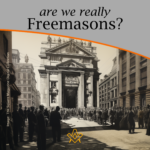 Maybe Freemasonry has opened its doors too wide. Perhaps some have not understood that the survival of Freemasonry in order to achieve its sublime purpose lies not in the number of members it has, but in their quality. Maybe we need less members and more Freemasons. Less men in Freemasonry and more Freemasonry in men. |
 What is ritual and why is it important? P1 Delve into the profound world of Freemasonry rituals and their significance. This insightful piece unravels the underlying importance of rituals, their impact on participants, and the transformative power they hold. Uncover why these centuries-old traditions remain integral to Masonic practice today. |
 Could Freemasonry be helpful for young men? Unravel the Masonic Brotherhood: Could Freemasonry be the antidote to modernity's challenges for young men? Dive in as we explore the Masonic world, its principles, camaraderie, and how its traditional rituals could help forge stronger identities in an increasingly complex world. |
 Discover the remarkable benefits of Lodge Meetings on your well-being. From fostering connections to combating stress, learn how these male-oriented gatherings offer an antidote to anger, hunger, isolation, and exhaustion. Dive into the power of shared experiences, understanding, and camaraderie. Your key to improved mental health awaits inside. |
 Tutorial for a Worshipful Master Unlock the Secrets to Leadership Mastery in our Worshipful Master's Tutorial! Brother Antonio Biella shares step-by-step guidance for Masonic Lodge leaders on honing their roles, duties, and future vision. Discover how to drive growth and engagement in your Lodge, setting ambitious goals and inspiring member participation. |
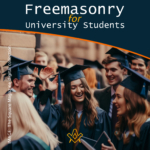 Freemasonry for University Students What are social skillset challenges facing students when they graduate from university ? |
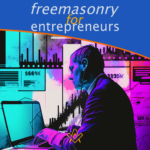 How the Core Values of Freemasonry; Brotherly Love, Relief and Truth Can Be Applied to Improve Productivity For Entrepreneurs |
 Why I became a Freemason: a personal journey of self-improvement Salik Tariq shares his reasons for becoming a Freemason – a journey of self-improvement, finding a community, and personal growth. |
 Freemasonry: Coming out of the Cloisters This paper examines the fundamental tensions on the lines of religion, gender and political ideology that exist in some jurisdictions of Freemasonry. It is on the first of these, religion, on which he makes an initial and exploratory focus. - by Gerald Reilly |
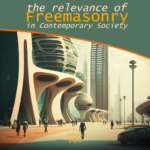 The Relevance of Freemasonry in Contemporary Society The role of Freemasonry in contemporary society is an indispensable one. Despite the challenges and misconceptions it faces, the organization remains steadfast in its humanitarian pursuits and commitment to personal growth and self-betterment. Through its efforts to evolve and adapt to the changing needs of its members and the world, Freemasonry continues to be a vital force in shaping a better future for all. |
 Has Freemasonry managed to revive and thrive after the darkness of the Pandemic? Robert Lomas gives us some (promising) insights. |
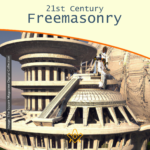 21st Century Freemasonry – a Sign of the Times? A recent article in The Times of London highlighted the dilemma 21st Freemasonry is facing. In this article one Master Mason shares his views of the strengths, and the challenges of modern Masonry. |
 A concept that is both based on our Freemasonic rituals and what we understand as teamwork. This article by Chris Batty examines why teamwork in the lodge is the network that binds us. |
 Lebanese Freemasonry has been both witness to and sometimes participants in turbulent events and forces, which shaped and influenced their world. |
 Is a Masonic Tradition Necessary? Dealing with Masonic tradition is a complex subject that requires careful analysis in order to reach a balanced point on the best etymological definition and the set of discourses and practices, which often end up being presented as such, without, however, presenting bases that support them, often serving only as a discourse that restricts and controls the masses. Fernando Rodrigues de Souza debates this complex subject. |
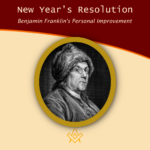 New Year's Resolution with Benjamin Franklin's Personal Improvement Are you ready for a new year's resolution challenge ? To accomplish his life’s goals, at 25 ( around 290 years ago ), Benjamin Franklin developed and committed himself to a personal improvement program that consisted of 13 virtues. You are invited to join me in practicing his daily routine for 2023. |
 The Alberta Masonic Higher Education Bursary Fund is to help the next generation of Albertans, our children and grandchildren, to obtain the education they need to lead successful lives and contribute to the welfare of mankind. As you can see from this little lesson of our history, education is truly a Masonic obligation. |
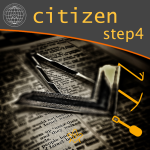 To be a Better Citizen of the World: Step 4 A value proposition for Pure Ancient Masonry as defined in terms of Citizenship; the allegories, symbolism and lessons are a blueprint for all Freemasons to be a better citizen of the world. |
 To be a Better Citizen of the World; Step 3 A value proposition for Pure Ancient Masonry as defined in terms of Citizenship; the allegories, symbolism and lessons are a blueprint for all Freemasons to be a better citizen of the world. |
 In connection with recent article about Freemasonry in the metaverse, we look at how an Egregore applies to Freemasonry in a digital world |
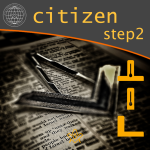 To be a Better Citizen of the World; Step 2 A value proposition for Pure Ancient Masonry as defined in terms of Citizenship; the allegories, symbolism and lessons are a blueprint for all Freemasons to be a better citizen of the world. |
 There are many brotherhoods in the world, and Freemasonry is one of the most significant and successful of them all. This article will be the focus two questions: the importance of brotherhood ? and is there room for improvement in Freemasonry? |
 Intergenerational relations in Masonry: challenges and possibilities Backed with scientific research, Professor Luiz Neto and Professor Alexandre Braune investigate the Intergenerational relations in Freemasonry and explores the challenges and opportunities. |
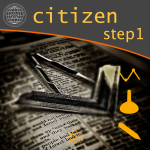 To be a Better Citizen of the World; Step 1 A value proposition for Pure Ancient Masonry as defined in terms of Citizenship; the allegories, symbolism and lessons are a blueprint for all Freemasons to be a better citizen of the world. |
 The Masonic Temple is a platform where both Freemasons and non-Masons, enthusiasts of real art and spiritual growth, connect to the new world of the metaverse. A Freemasonry in the metaverse project, based regular freemasonry principles. |
 Opportunity to fix the Sussex fudge Is there a value proposition for members, that under English Constitution Freemasonry, we have a 4 part offering; Entered Apprentice, Fellowcraft , Master Mason and Companion, conducted in a single craft lodge ? |
 Value Proposition of Freemasonry In addressing declining lodge membership and lack of attendance, we need to assess the value it offers to members. What is value, and what does it mean to you? |
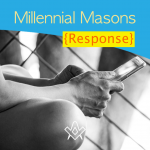 What is a 'Millennial' and what do they want from Freemasonry? You'll be surprised at the answers. |
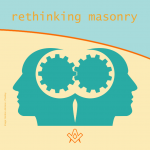 Let us help answer a fundamental question, from a confused newly raised brother asking “What does it all mean and where do I go from here?” |
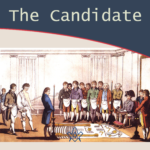 Written in 1930, much of the advice is still relevant today - although some may provoke further thought or debate! |
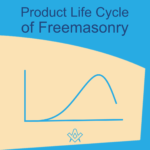 Product Life Cycle of Freemasonry An inconvenient truth about the product life cycle of Freemasonry |
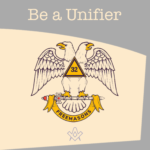 Freemasonry is local. This is where we need to start. We start with our Facebook friends, our neighbours, our colleagues, our lodges… |
 Freemasonry in the time of pandemic The Rule of Six. Localised lockdowns. Second wave? What do we do now?! The answer is simple - engage with members, promote Masonic education and get thinking outside the lodge. |
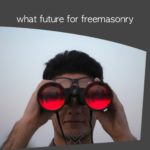 The current functioning of the Masonic movement has some positive aspects and others that are blatantly backward and counterproductive. |
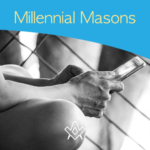 What is a 'Millennial' and what do they want from Freemasonry? You'll be surprised at the answers. |
 How to improve your Lodge Membership Marketing Program. |
 The Anti-Social Impact of Social Media The 'dark side' of social media and its negative effect on our mental health |
 If Freemasonry cannot meet, is this an opportunity to make a change to how we do things? |
 Has your lodge accepted an unknown candidate from the internet? Third in a three-part series looking at the process to accepting candidates via the internet |
 Is the brother of a brother a brother ? Rights to visit - recognition and regularity re-evaluated. |
 The second article in the Unknown Candidate series - Outlining the social media marketing process to attract the unknown candidate to make that first enquiry |
 Ask a random Freemason the purpose of Freemasonry and the likely response will be to “make good men, better”. Research undertaken by James Justin Davis Pennsylvania Academy of Masonic Knowledge. |
 Has your lodge accepted an unknown candidate from the internet? First in a three-part series looking at the process to accepting candidates via the internet |
 Mental Health - Raising its awareness and how we as Freemasons throughout the entire UK can help our fellow brethren and their families when they need it. |
 Share one thought why freemasonry is relevant today - Open question posted on Facebook with a very wide range of responses from Brethren across the globe |
 The Tipping Point of Freemasonry Why do brothers lose interest in Freemasonry and what can we do to get that spark back? At what moment did our own thoughts begin to waver? |
masonic knowledge
to be a better citizen of the world
share the square with two brothers

click image to open email app on mobile device








